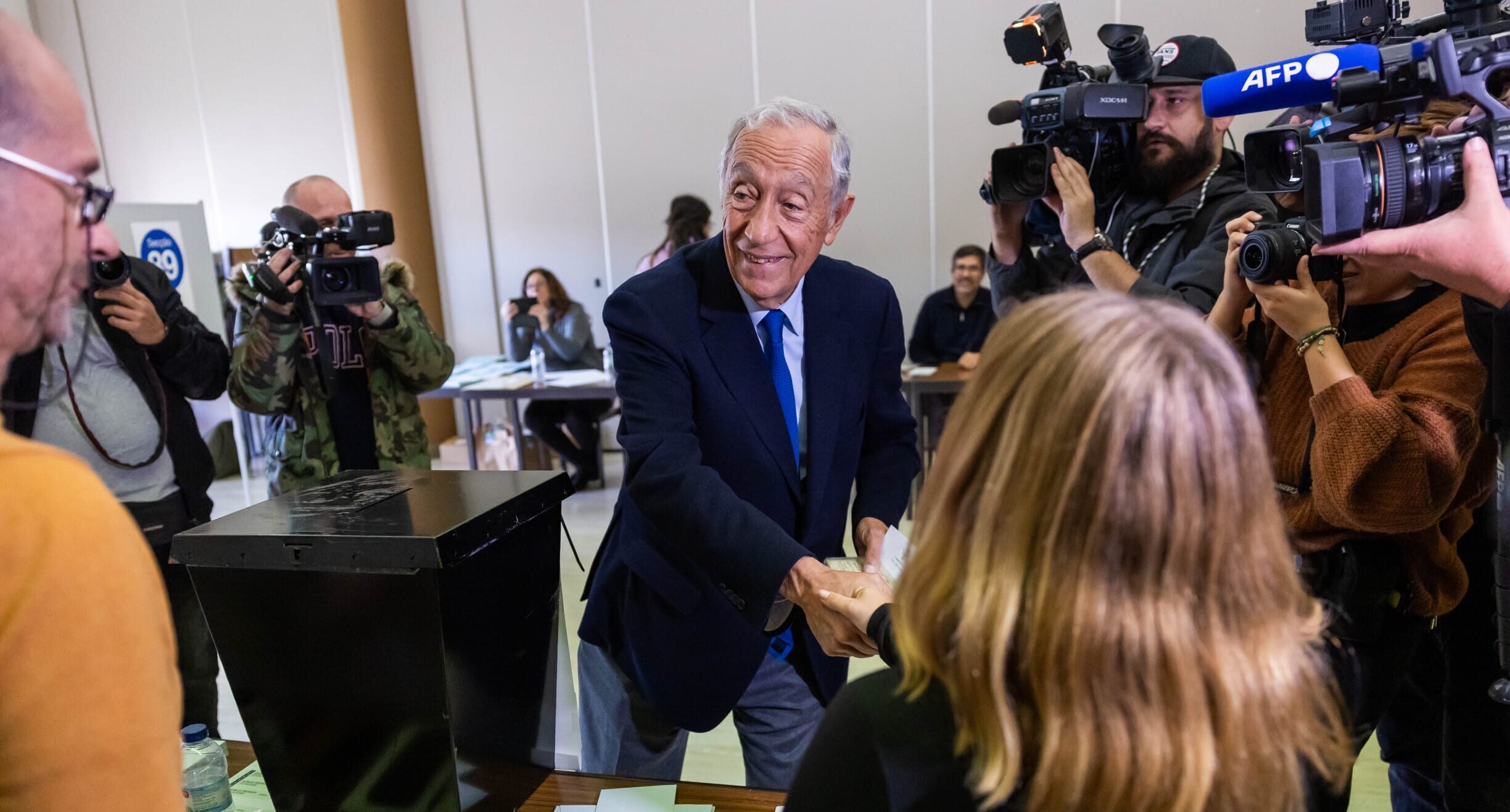Habitual abstention compounded this year by high percentage of “undecided”
President Marcelo was among the 208,000 citizens who elected to ‘vote early’ yesterday, under a regime that allows people away from home to cast their votes without having to return – and he used the occasion to appeal to the country to respond to legislative elections on Sunday, and reduce the habitual ‘scourge’ of abstention.
Abstention levels are traditionally extremely elevated in Portuguese elections – and this latest legislative battle is seen as pivotal. The rise of CHEGA is being seen as likely to change the political landscape – while the number of undecided voters (according to most opinion polls) has actually been growing as the campaign progresses.
What this says about the value of televised debates/ street appearances, the parties’ messaging etc. is worrying all those concerned, who recognise this week as “absolutely decisive”.
With the percentage of undecided voters vacillating between 17%-20%, the reality is that these ‘floating voters’ could end up ‘tipping the balance’.
As of today, leader writers and political pundits are leaning more to a ‘win’ by AD (the centre-right alliance) which will almost certainly need to be bolstered by ‘an agreement with CHEGA’.
Carlos Rodrigues, editorial director general of Correio da Manhã, suggests AD’s campaign has been, up until now, much better organised than that of its main rival PS.
A few ‘unfortunate declarations’ (by candidates) have dented the “desired effect” – but then the PS bandwagon has equally been frustrated by citizens caught on camera making obscene gestures and hurling insults, and the increasingly ‘alarmist’ declarations of its leader, Pedro Nuno Santos, who talks of the ‘right’ (lumping centre-right and right-wing parties PSD, CDS-PP, Iniciativa Liberal and CHEGA together) as if they personified the four horsemen of the Apocalypse.
All in all, for the energy and efforts put into this campaign, the ‘situation’ hasn’t changed: everything is wide open, and the smaller parties are all hoping for enough votes to make their support to whoever ‘wins’ crucial.
And then there are the voices (and there are so many of them) who warn that whatever happens next Sunday – whichever combination of parties takes control of Portugal’s immediate future – the solution could fall apart rapidly.
Writing under the headline “Prognostics only after March 10”, Armando Esteves Pereira – deputy editorial director of the country’s ‘most widely read tabloid’, stresses: “Next Sunday the party political system will suffer a seismic shock. We just don’t know the size, which will depend whether CHEGA receives a lot below the 20% (tipped in some polls), or if it gets close to that marker.
“With so many undecided voters it is a risk to make predictions before knowing the results but the only certainty is that André Ventura’s party will make gains, which will complicate the scenarios for forming a government if neither the Democratic Alliance with Iniciativa Liberal, or PS with the (rest of the) left muster an absolute majority in parliament”.
Add to this the curved ball that “more than 60% of citizens in Portugal tend not to trust parliament – a number above the European average, which is 56%”, according to a survey on people’s political perceptions, published today by Pordata (see story to come).




















